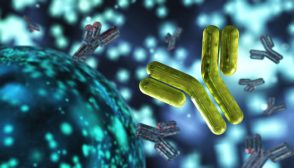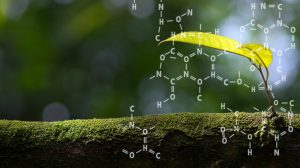Definition
noun
(analytical chemistry)
A logarithmic measure of the amount of light absorbed (at particular wavelength) as the light passes through a sample or substance.
(microbiology)
The measure of the amount of light absorbed by a suspension of bacterial cells or a solution of an organic molecule with the use of a colorimeter or spectrophotometer.
Supplement
Absorbance measurements are often carried out in analytical chemistry, since the absorbance of a sample is proportional to the thickness of the sample and the concentration of the absorbing species in the sample.
Absorbance may be applied in plotting the growth of bacteria in suspension cultures. It may also be used in gauging the purity and concentration of molecules (e.g. proteins) in solution.
Although absorbance does not have true units, it is quite often reported in “Absorbance Units” or AU.
Word origin: L absorbére, equiv. to ab- + sorbére to suck in, swallow + –ance.
Related forms: absorbency (noun).
Synonym: optical density.
Compare: absorption.
Dictionary > Absorbance
You will also like...

Passive and Active Types of Immunity
Lymphocytes are a type of white blood cell capable of producing a specific immune response to unique antigens. In thi..

Protein Synthesis
Part of the genetic information is devoted to the synthesis of proteins. mRNA, a type of RNA, is produced as a transcri..

Psychiatry & Mental Disorders
Different mental disorders are described here. Read this tutorial to get an overview of schizophrenia, affective mood di..

Neural Control Mechanisms
Neurons generate electric signals that they pass along to the other neurons or target tissues. In this tutorial, you wil..

Plant Meristems and Growth
In plants, growth occurs in meristems, which are the site of repeated cell division of unspecialized cells. These cells ..

Effect of Chemicals on Growth & Development in Organisms
Plants and animals need elements, such as nitrogen, phosphorus, potassium, and magnesium for proper growth and developme..

